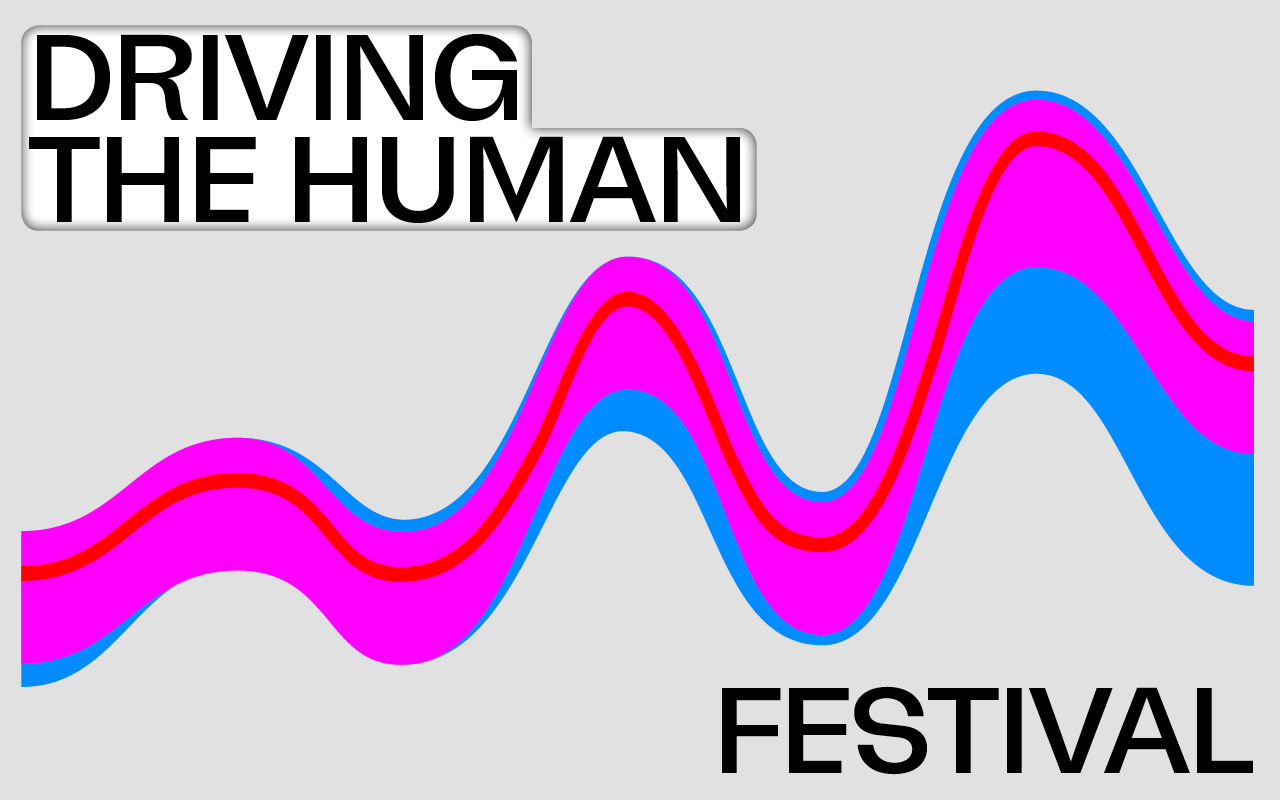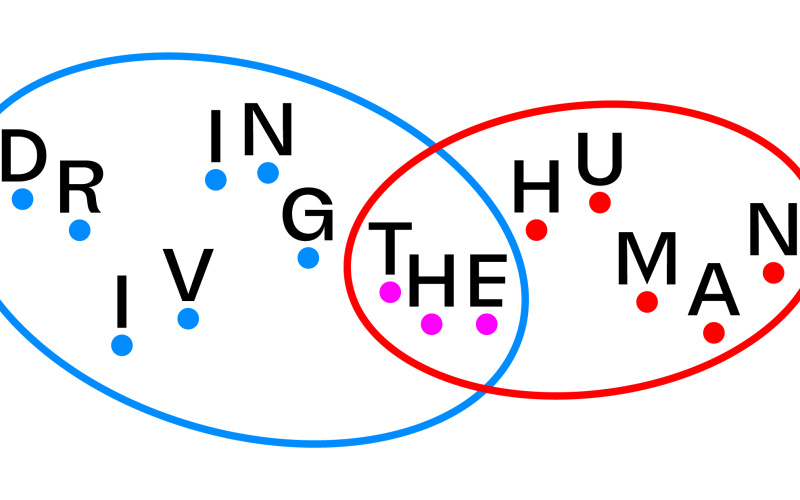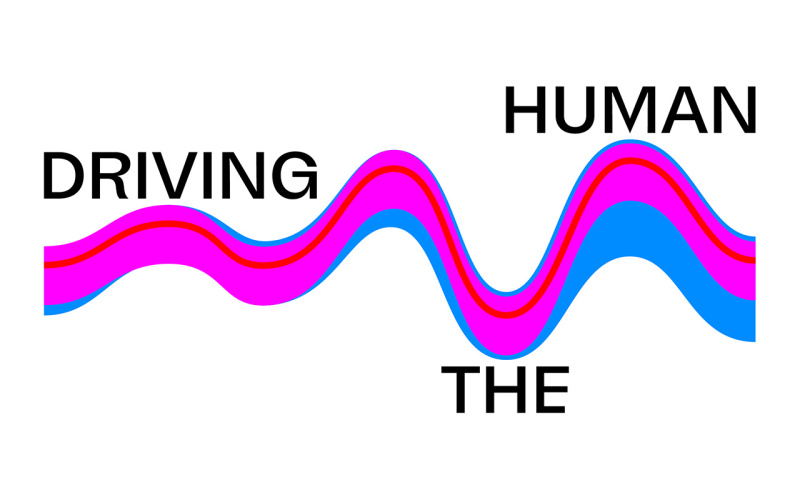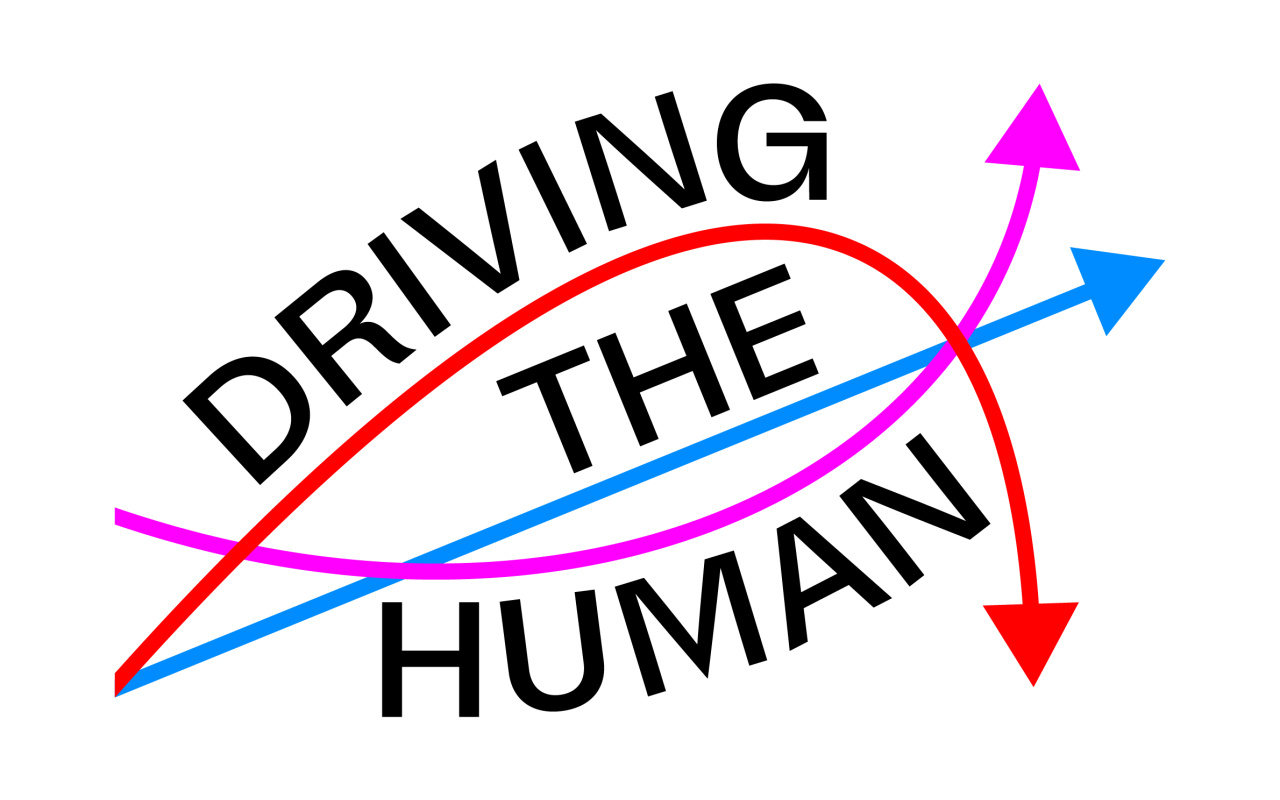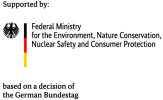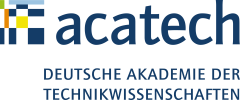Driving the Human Festival
Online, free and broadcasted live
Fri, November 20, 2020 6:30 pm – Sun, November 22, 2020 9:30 pm CET
- Location
- Online
++ The video recordings of the festival are available only in English and without subtitles. You can find them here on the »Topic Pages« ++
The online festival of »Driving the Human« will publicly discuss and condense questions and visions for shaping a sustainable and collective future by combining science, technology, and art.
The Karlsruhe University of Arts and Design (HfG) and the ZKM invite scholars, artists, designers, and other multidisciplinary participants to launch a debate on the themes currently defining our existence – from the human to non-human, from existence to co-existence, from digital to analogue. As a catalyst for experimentation, the festival formulates the questions that will orient the next phase of the three-years-long investigation »Driving the Human«.
The festival will take place via live stream. The program brings inspiring speakers and visionary voices to the fore, in search of the constructive frictions that define our contemporary moment.
Participants:
Frédérique Aït-Touati, Albert-László Barabási, Michel Bauwens, Bio Design Lab (Lisa Ertel, Ina Grabosch, Julia Ihls, Anne-Sophie Oberkrome), Jan Boelen, Melanie Bonajo, Joanna Bourke, Claudia Chwalisz, Alba G. Corral & Tutu, Sasha Costanza-Chock, Ariana Dongus, Jan Fermon, Sabine Faller, Feral Atlas Collective (Lili Carr, Feifei Zhou), Anett Holzheid, Maximilian Ilse, Indy Johar, Susanne Kadner, Michael Kaethler, Karrabing Film Collective, Barbara Kiolbassa, Bogna Konior, Kim André Lange, Sarat Maharaj, Freo Majer, Julien McHardy, Daria Mille, Alexandre Monnin, Simone Niquille, Hans Ulrich Obrist, Alexandra Pirici, Guillaume Pitron, Lena Reitschuster, Teresa Retzer, Vera Sacchetti, Martina Schraudner, Jeremy Shaw, Jonas Staal, Isabelle Stengers, Jenna Sutela, John Thackara, Vivien Tauchmann, Julijonas Urbonas, Nomeda & Gediminas Urbonas, Peter Weibel, Cary Wolfe, Richard D. Wolff.
The critical situation of the Earth leads to the necessity to find different ways to deal with it constructively. The exhibition »Critical Zones«, currently on display at ZKM, attempts to discuss the current ecological and socio-political challenges of our time and to explore new forms of coexistence of all forms of life. Similarly investigating local resources and sustainable possibilities to redesign and rethink production methods, the »Bio Design Lab« of the Karlsruhe University of Arts and Design will introduce several formats to discuss practical and sustainable visions for the future.
From 2020 to 2023, the scientific and artistic collaboration »Driving the Human« will become a catalyst for experimentation, shaping sustainable and collective futures that combine science, technology, and the arts in a transdisciplinary and collaborative approach.
»Driving the Human« develops and produces seven tangible prototypes responding to complex contemporary scenarios. The project is jointly led by four partner institutions: »acatech« – National Academy of Science and Engineering, »Forecast«, the Karlsruhe University of Arts and Design and ZKM | Center for Art and Media Karlsruhe – and relies on the expert knowledge and skills of their combined networks. Together, these partners will work to enrich the various developments and outcomes of the initiative.
The festival will be held in English language.
Program
For the entire festival the Workshop »THERE ARE BIOCOMPOSITES GROWING IN MY GARDEN« by Kim André Lange & Bio Design Lab will be offered at Instagram @biodesignlab_hfgk.
Friday, November 20 | Time Zone: CET
| 6.30 pm | Welcome and Introduction to the Program Barbara Kiolbassa (art mediator), Julien McHardy (researcher, curator) | |
| 6.45 pm | Welcome Jan Boelen (rector of HfG) and Peter Weibel (CEO of ZKM | Karlsruhe) | |
| 6.55 pm | Music and Visuals | |
| 7 pm | Presentation of the Exhibition »Critical Zones« at the ZKM Daria Mille (curator at ZKM) | |
| 7.15 pm | Project presentation of the »Bio Design Lab« at the HfG Lisa Ertel, Ina Grabosch, Julia Ihls, Anne-Sophie Oberkrome (HfG alumni and students) | |
| 7.30 pm | What are the urgencies of our times? | |
| 7.45 pm | Statement and Performance Vivien Tauchmann, »Self-As-Other-Training: Smartphone (1)« | |
| 8 pm | Project presentation Hans Ulrich Obrist, »IT’S URGENT!« | |
| 8.35 pm | Film screening Melanie Bonajo, »TouchMETell«, 2019, 25 min, installation in collaboration with Théo Demans (film still), courtesy the artist & AKINCI | |
| 9 pm | Music and Visuals |
Saturday, November 21 | Time Zone: CET
| 11 am – 12 pm | Close-Up | Workshop »THERE ARE BIOCOMPOSITES GROWING IN MY GARDEN« Kim André Lange, Bio Design Lab Assignments and Q&A via this live stream (exception), Instagram @biodesignlab_hfgk | |
| 3 pm | Welcome and Introduction to the Program Barbara Kiolbassa (art mediator ZKM), Julien McHardy (researcher, curator) |
Section 1: (NON-)HUMAN
-
What is Human? Have we ever been human?
Until now, the Western-centered categorization of the world has always been based on the human perspective since the Enlightenment. From the observation of subatomic elements to the examination of the whole universe, being is categorized through the human lens. However, the world is not as abstract as human divisions suggest, for example, humans and animals, culture and nature, organic and non-organic. In fact, we are deeply interconnected with other-than-human lifeforms, with non-living matter as part of biochemical processes or other entities that shape life on this planet. This panel thinks beyond traditional categories and embraces the complexities of the (Non-)Human by exploring posthumanism, transhumanism, and the relation and interconnectedness between human and non-human entities.
| 3.15 pm | Lecture Alexandra Pirici, »Future ground: A movement-lecture on nurturing different sensibilities, pleasures, and collaborations with land« | |
| 3.40 pm | Panel Discussion Joanna Bourke (social and cultural historian), Bogna Konior (writer, academic), Cary Wolfe (professor of English, Rice University), moderated by Lena Reitschuster | |
| 4.30 pm | Film screening Jenna Sutela, »nimiia cétiï«, 2018, 12 min |
Section 2: HABITAT
-
Where do we live? Where can we land?
There is an existential threat to our collective conditions of existence. There are no tools yet, but to address these problems and one way to map this new Earth is to understand it as a network of »Critical Zones«. Although human activity is barely visible at the planetary or universal scale, it is hugely disruptive in the thin, fragile, and highly complex layer that is the habitat upon which all life on Earth depends. Can we engage with our habitat in other ways? And can we work together to become »terrestrial« – to build a common ground? This section explores how we can learn how to live within the Critical Zones.
| 4.50 pm | Conversation Julijonas Urbonas (artist, designer, researcher, engineer and founder of Lithuanian Space Agency) with Jan Boelen | |
| 5.15 pm | Performance Julijonas Urbonas, »Rehearsing a planet made of human bodies« | |
| 5.30 pm | Panel Discussion Frédérique Aït-Touati (historian of literature and modern science, theater director), Guillaume Pitron (journalist, author and documentary filmmaker), Alexandre Monnin (philosopher, Scientific Director of Origens Media Lab), moderated by Sabine Faller | |
| 6.25 pm | Lecture Gediminas & Nomeda Urbonas, »The Swamp Observatory« | |
| 6.40 pm | Performance Vivien Tauchmann, »Self-As-Other-Training: Smartphone (2)« |
Section 3: ECONOMY
-
What is progress? How do we produce and exchange value?
By reconnecting with actual needs of living entities, new links between global and local, urban and rural, big and small scale economies can emerge, and »growth« can develop. Currently, progress is defined by socio-economic processes, while it should rather be measured by its positive influence on the Commons, the treatment of nature and human and non-human life. Can the concept of progress be reconsidered? Can a new economic approach help to develop alternative models of production and consumption? This section explores collective and democratic practices, while investigating small scale economies and alternative production cycles.
| 7.35 pm | Statement John Thackara (philosopher, writer, curator) | |
| 7.45 pm | Panel Discussion Michel Bauwens (theorist, writer, advisor, and founder of the Foundation for Peer-to-Peer Alternatives), Susanne Kadner (Managing Director Circular Economy Initiative Germany at acatech), Richard D. Wolff (Professor Emeritus of Economics, University of Massachusetts, Amherst, and founder of Democracy at Work), moderated by Anett Holzheid | |
| 8.30 pm | Performance Vivien Tauchmann, »Self-As-Other-Training: Retail« | |
| 8.50 pm | Film screening Jeremy Shaw, »I CAN SEE FOREVER«, 2018, 43 min,courtesy Jeremy Shaw and KÖNIG GALERIE, Berlin, London & Tokyo |
Sunday, November 22 | Time Zone: CET
| 11 am–12 pm | Close-up | Workshop »THERE ARE BIOCOMPOSITES GROWING IN MY GARDEN« Kim André Lange, Bio Design Lab Assignments and Q&A via this live stream (exception), Instagram @biodesignlab_hfgk | |
| 11 am–1.30 pm | Workshop »Feral Atlas as a Verb« Registration required, not part of the live stream | |
| 3 pm | Welcome and Introduction to the Program Barbara Kiolbassa (ard mediator ZKM), Julien McHardy (researcher, curator) |
Section 4: TECHNOLOGY
-
Can A.I. help to built up a more Sustainable and Collective Future?
Artificial intelligence is already used to structure all areas of human life. In this data-based reality, human decisions have become data sets that build the infrastructures of our societies. Due to the influence of technology giants on politics and science, research that acts independently of economic interests has become almost impossible. In a web-based environment, passive consumption and active engagement are being stimulated permanently, whereby the border between free choice and imposed consumerism disappears. Can we find a way to engage critically with the use of AI? Could AI become a tool to build a more sustainable and collective future? This section explores critical engagements with AI and probes boundaries and alternative uses, investigating ethical limits and strategies for activism.
| 3.15 pm | Conversation Albert-László Barabási (physicist, network scientist) with Teresa Retzer (curator at ZKM) | |
| 3.30 pm | Panel Discussion Maximilian Ilse (PhD candidate at the Amsterdam Machine Learning Lab (AMLab), Simone Niquille (designer, researcher), moderated by Ariana Dongus | |
| 4.15 pm | Performance Vivien Tauchmann, »Self-As-Other-Training: Textiles« |
Section 5: KNOWLEDGE
-
Who is producing knowledge and for whom?
The creation, dissemination, and consumption of information has reached unprecedented levels. With political and economic powers exerting huge influence on the scope and content of the circulating information, the gap between the content and the actual facts and fundamental knowledge is growing. It used to be said that knowledge is power, but today information is power. How can we turn this around and distribute messages with factual content and generate valuable knowledge? This section engages critically with the production and distribution of information and knowledge.
| 4.30 pm | Statement Isabelle Stengers (philosopher) | |
| 4.45 pm | Panel Discussion Indy Johar (architect, co-founder of 00 (project00.cc)), Sarat Maharaj (Professor of Visual Art and Knowledge Systems, Lund University and Malmö Art Academy), moderated by Michael Kaethler | |
| 5.30 pm | Film screening Karrabing Film Collective, »The Mermaids, or Aiden in Wonderland«, 2018, 27 min |
Section 6: ACCESS
-
Who has access to knowledge and participation?
Who participates in the formation of political and socio-economic infrastructures and whose opinion is neglected? How can we build a system which addresses both the needs of all humans and also the necessities of non-human beings? This section investigates new models of participation, tools to challenge structural inequalities, and engages critically with digital and analogue tools.
| 6.45 pm | Project Presentation Lili Carr, Feifei Zhou, »Feral Atlas Collective« | |
| 7 pm | Panel Discussion Claudia Chwalisz (author, leads the OECD’s work on innovative citizen participation), Sasha Costanza-Chock (researcher, designer, activist), moderated by Vera Sacchetti | |
| 7.45 pm | Project Presentation Jonas Staal and Jan Fermon, »Collectivize Facebook«, 2020 | |
| 8.20 pm | Performance Vivien Tauchmann, »Self-As-Other-Training: Household« | |
| 8.30 pm | Conclusion What Is, Then, Urgent? How Can Driving the Human Do Something About It? | |
| 9.20 pm | Music and Visuals | |
| 9.30 pm | Bruno Latour and Frédérique Aït-Touati, theatre play: »Moving Earths«, 2019, 72 min |
Colophon
This festival is organized and hosted by ZKM | Center for Art and Media Karlsruhe and Karlsruhe University of Arts and Design
Concept and Idea of the Festival
Jan Boelen & Peter Weibel with Sarah Donderer & Teresa Retzer
Coordination
Sarah Donderer, Laura Morcillo (HfG Filmcrew), Teresa Retzer, Vera Sacchetti, Philipp Ziegler
Project Assistance
Annina Guntli, Laura C. Schmidt
Main Moderation
Barbara Kiolbassa, Julien McHardy
Panel Moderation
Ariana Dongus, Sabine Faller, Anett Holzheid, Michael Kaethler, Lena Reitschuster, Vera Sacchetti
Technical Lead & Direction
Moritz Büchner
Camera & Editing
Johannes Bauer, Benjamin Breitkopf, Moritz Büchner, Mustafa Emin Büyükcoskun, Pauline Cemeris, Jule Heinzmann, Alejandra Miranda Janus, Andy Koch, Xenia Leidig, Peter Müller, Olga Öhler, Sophie Reißfelder, Quirin Thalhammer, Victor van Wetten, Christina Zartmann
Driving the Human Visual Identity
Studio Yukiko, Berlin
Graphic Design
Felix Plachtzik
Communication & Social Media
Lena Becker, Luisa Cossu, Sarah Donderer, Alexandra Hermann, Juliane Hohlbaum, Sabine Jäger, Nikola Joetze, Greta Kallsen, Jessica Menger, Beate Münzenmaier, Teresa Retzer, Inês Revés, Vera Sacchetti, Laura C. Schmidt, Lena Schneider, Dominika Szope, Johannes Wiesel
Zoom Host
Clara Runge
Photographs
Uli Deck, Felix Grünschloss
Music
Yannick Schütte
Make-up
Sotirios Noutsos
Special Thanks to
Nikola Joetze, Anna Maganuco, Freo Majer, Daria Mille, Martina Schraudner, Jan Speckenbach, Desiree Weiler
Event Website
-
Supporters
-
Part of the Future Architecture program
-
A project by
